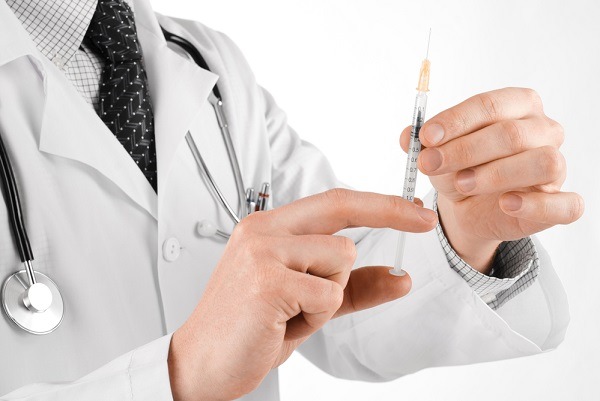Tolterodine is a drug used to treat an overactive bladder.overactive bladder). This condition can cause a sudden urge to urinate (urge incontinence) and the inability to resist the urge to urinate.
Tolterodine belongs to the class of antispasmodic drugs. This drug works by relaxing the muscles in the bladder, thereby decreasing bladder contractions. This way of working will help sufferers overactive bladder to control the urge to urinate.

Trademarks of tolterodine: Detrusitol
What is Tolterodine
| group | Prescription drugs |
| Category | Antispasmodic |
| Benefit | Overcoming the condition of an overactive bladder or overactive bladder |
| Used by | Mature |
| Tolterodine for pregnant and lactating women | Category C: Animal studies have shown adverse effects on the fetus, but there are no controlled studies in pregnant women. Drugs should only be used if the expected benefit outweighs the risk to the fetus. It is not known whether tolterodine is absorbed into breast milk or not. If you are breastfeeding, do not use this medicine before consulting your doctor. |
| Drug form | Film-coated tablets |
Warnings Before Taking Tolterodine
Before taking tolterodine, you need to pay attention to the following:
- Tell your doctor about any allergies you have. Tolterodine should not be given to patients who are allergic to this drug.
- Tell your doctor if you have or have had urinary retention, bladder obstruction, ulcerative colitis, intestinal obstruction, glaucoma, severe constipation, kidney disease, liver disease, heart disease, myasthenia gravis, or electrolyte disturbances such as hypokalemia.
- Tell your doctor if you or a family member has a history of heart rhythm disturbances, such as a prolongation of the heart's QT interval.
- Tell your doctor if you are taking certain medications, supplements, or herbal products.
- Tell your doctor if you are pregnant, breastfeeding, or planning a pregnancy.
- Limit activities in hot temperatures, such as exercising outdoors during the day or bathing in hot water, as this drug can increase the risk of heatstroke.
- Do not drive a vehicle, operate heavy machinery, or perform activities that require alertness, after taking tolterodine, as this medicine may cause dizziness or blurred vision.
- See your doctor right away if you have an allergic reaction, overdose, or serious side effects after taking tolterodine.
Dosage and Rules of Use Tolterodine
The following is the dose of tolterodine in adults to treat an overactive bladder or: urge incontinence:
- Quick release tablets (immediate-release)The dose is 2 mg, 2 times a day. The dose can be reduced to 1 mg, 2 times a day according to the body's response.
- Slow release tablets (extended release)The dose is 2–4 mg, once daily. The dose can be reduced to 1 mg, 2 times a day according to the body's response.
How to Take Tolterodine Correctly
Follow the doctor's advice and read the information listed on the medicine package. Try to take tolterodine at the same time each day for the drug to be more effective.
Tolterodine tablets can be taken with or without food. Use a glass of water to help swallow it. Do not chew or crush tolterodine tablets as this may increase the risk of side effects.
Take tolterodine tablets according to the dose prescribed by your doctor. Make sure that there is sufficient time between one dose and the next.
If you forget to take tolterodine, take it immediately if the break with the next consumption schedule is not too close. If it is close, ignore it and do not double the dose.
Tolterodine may increase the risk of developing heat stroke. Therefore, drink plenty of water while undergoing treatment with this drug. Immediately see a doctor if you experience symptoms heat stroke, such as an increased body temperature, mood or mental changes, headaches, or dizziness.
Store tolterodine in a closed container in a cool, dry place. Keep this medicine away from direct sunlight and keep this medicine out of reach of children.
Interactions of Tolterodine with Other Drugs
Drug interactions that can occur if tolterodine is used with certain drugs include:
- Increased risk of ulcers or gastrointestinal bleeding when used with potassium supplements
- Increased risk of occurrence heat stroke when used with zonisamide or topiramate
- Increased risk of tolterodine side effects when used with abametapir, cimetidine, clarithromycin, cobicistat, enzalutamide, erythromycin, idelalisib, itraconazole, mifepristone, ketoconazole, lonafarnib, nefazodone, ribociclib, or saquinavir
- Enhanced anticholinergic effect of revefenacin or glycopyrrolate
- Increased risk of gastrointestinal movement disorders when used with pramlitide
Tolterodine Side Effects and Dangers
Side effects that may occur after taking tolterodine are:
- Headache or dizziness
- Blurred vision
- Joint pain
- dry mouth
- Dry eyes
- Stomach ache
- Constipation or diarrhea
Check with your doctor if the side effects above do not improve or get worse. Immediately see a doctor if an allergic reaction occurs to a drug or serious side effects occur, such as:
- Pain or difficulty urinating
- Confused or hallucinating
- Chest pain or fast heart rate
- Stomach pain that is getting worse
- Very heavy dizziness or fainting









